Behind the News
Behind the News: All the backstories to our major news this week
Published
11 months agoon

Over the past week, there were many important stories from around the African continent, and we served you some of the most topical ones.
Here is a rundown of the backstories to some of the biggest news stories in Africa that we covered during the week:
Somalia finally gets UN approval for arms purchase
Somalia’s 31-year arms purchase restriction by the United Nations was lifted on Friday by the Security Council of the global body. The council voted 14-1 to lift the arms embargo, with France abstaining. This allows Somalia to freely purchase new weapons. The transfer of supplies or weapons to terrorists connected to Al Shabaab is still prohibited.
Somalia has been constrained by this UN decision amidst the country’s quest for lasting peace in the face of internal wranglings and terrorist activities. In September, Somalia asked the UN to pause a planned drawdown of 3,000 African Union peacekeepers for three months to allow its security forces time to regroup after a militant attacks forced them to withdraw from several recently captured towns.
An arms embargo was imposed on Somalia in January 1992 by Security Council Resolution 733 in response to the conflict that was still going on and the worsening humanitarian situation. The adoption of this resolution was unanimous.
Before being lifted on Friday, the ban had undergone several modifications. In June 2001, Security Council Resolution 1356 allowed for exemptions to the embargo for supplies of non-lethal military equipment for use in humanitarian operations, while in July 2002, Resolution 1425 clarified the scope of the arms embargo, making clear that it prohibited the financing of arms acquisitions as well as the direct or indirect sale or supply of technical advice or military training.
Uganda pivots to China after Western sanctions
Uganda plans to apply for a $150 million loan from China’s Export-Import Bank (Exim) in response to World Bank’s lending restrictions related to its anti-homosexuality legislation. The bank in August stated that “no new public financing for Uganda will be presented to our Board of Executive Directors until the efficacy of the additional measures has been tested.”
“Uganda’s Anti-Homosexuality Act fundamentally contradicts the World Bank Group’s values. We believe our vision to eradicate poverty on a livable planet can only succeed if it includes everyone irrespective of race, gender, or sexuality,” the bank said.
But the East African country appears to have moved on from the setback with the multilateral body as it is now negotiating a loan to finance the construction of a pipeline to help export its crude oil to foreign markets with the Chinese export credit organisations, SINOSURE and Exim Bank.
The Ugandan legislature passed a law outlawing LGBTQ people in May. The legislation included many strict regulations that sparked outrage from the international community, including the United States, the European Union, the United Nations, and big businesses.
Meanwhile, Uganda’s recent relations with China as a sub-regional power might be a concern for the United States and its Western allies.
A look at Nigeria’s 2024 budget of ‘Renewed Hope’
On Wednesday, the Nigerian president, Bola Tinubu, presented a N27.5 trillion 2024 budget proposal to a joint session of the 10th National Assembly in Abuja in which he stressed that defence, education, and internal security were accorded top priority.
The budget expenditure for the year as proposed stood at N27.5 trillion, the highest in the history of Nigeria, and 10.9% higher than the 2022 revised budget (N24.83 trillion – addition of signed + supplementary
budgets).
Revenue projections surged by 65.8% to N18.32 trillion, surpassing the 2023 revised budget of N11.05 trillion, while expenditure projections rose by 10.3% to N27.5 trillion from the 2023 revised budget. It breaks down into capital expenditure (31.6%), recurrent (36.1%), and debt servicing (30.0%).
Revenue and fiscal deficit projections seem unrealistic. The country continues to live in denial as revenue consistently underperforms projections and maintains a slow growth projection while spending surges annually. As a clear departure from previous budgets, the 2024 budget highlighted how the government intends to support growth and employment. However, there is no mention of sending the Finance Bill 2023 to support the 2024 budget implementation.
Britain’s Sunak adamant on migrant deal with Rwanda
British Prime Minister, Richie Sunak, has continued to press for a migrant deal with Rwanda despite recent major legal setbacks for the arrangement after meeting Rwandan President Paul Kagame on Friday for a discussion on the subject.
Sunak, while responding to questions on the sidelines of the ongoing COP28 climate conference in Dubai, maintained that he remained “confident” in his government’s proposals. The two leaders wanted to ensure that the plan’s details were correct.
“We’re finalising the arrangements we have with them. It was good to check in with him on that and reiterate… our commitment to making the partnership work,” Sunak said at a press conference.
“Paul and I have forged a very strong relationship over this issue. He’s keen to work very constructively with us.”
Last year, Britain declared that it would send each asylum seeker to Rwanda for 169,000 pounds ($215,035), with the average cost of deporting each person to Rwanda estimated at 105,000 pounds, 22,000 pounds for travel and accommodations, and 18,000 pounds for processing and legal fees.
In recent years, illegal migrants from the Middle East and Africa have become a major source of concern in Europe. A record 45,000 people had flown across the English Channel in small boats as of June 2023.
Similar to Britain, Italy is experiencing an increase in the number of migrants entering the country through the Mediterranean, with a rise in arrivals in 2022 compared to this year. In comparison to roughly 10,200 during the same period last year, nearly 150,000 people have arrived in Italy thus far in 2023.
You may like
-


In 6 months, Nigerians spent over $2.38 million on medical tourism
-
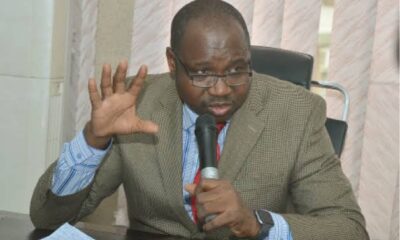

Nigeria confirms supplying 24-hr power to Togo, Benin, Niger
-


Nigerian govt imposes 5% tax on telecom, betting services
-


Nigerians will begin to see the fruits of Tinubu’s labour— CoS Gbajabiamila
-
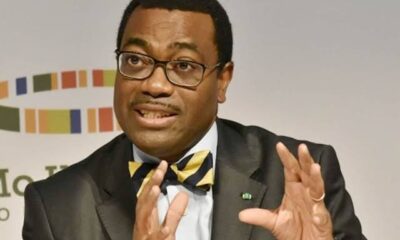

AfDB to establish $100m investment bank for Nigerian youths
-


Binance launches mobile money payments for Crypto purchases in West, Central Africa
Behind the News
Behind the News: All the backstories to our major news this week
Published
3 days agoon
October 18, 2024
Over the past week, many important stories from around the African continent were published, and we served you some of the most topical ones.
Here is a rundown of the backstories to some of the biggest news in Africa that we covered during the week:
Another look at Africa’s debt crisis
Conversations around Africa’s public debt were on the table during the week as Achim Steiner, administrator of the United Nations Development Programme, stated on Monday that the world’s poorest countries were unable to meet sustainable development targets because they had to prioritise debt payments over investments.
Addressing a gathering in Hamburg, Steiner asserted that the world financial crisis was impeding countries’ ability to accomplish the objectives, which include eradicating hunger and poverty, increasing access to healthcare and education, providing sustainable energy, and protecting biodiversity.
Since the COVID-19 pandemic’s pervasive effects on economies, the majority of the continent’s nations have suffered with both internal and international debt; yet, few have achieved much in the fight for debt restructuring under the G20 framework.
Numerous African nations, including Egypt, Tunisia, Nigeria, Ghana, Zambia, and others, are struggling with significant foreign debt. Together with Zambia and Ghana, Ethiopia will be a part of a thorough restructuring known as the “Common Framework.”
At the opening ceremony of the annual African Union summit in Ethiopia last year, UN Secretary-General Antonio Guterres made the case for changes to the international financial system’s structure to better meet the requirements of developing nations.
Africa’s whole external governmental debt as of 2021 was 726.55 billion USD. The amount of foreign public debt increased from 696.69 billion dollars in comparison to the previous year.
Concerns are being raised by the rising debt levels in Africa, which could not only hinder economic growth but also make repayment nearly difficult for many of these nations. This begs an important question: When does debt stop being beneficial and instead start to negatively impact a nation’s economic performance?
Kenya remains committed to Haiti, but what does it stand to gain?
Kenya will support an international anti-gang effort in Haiti next month by dispatching an additional 600 police officers there. Haiti’s prime minister was in Kenya to expedite the deployment of the military.
At least eleven countries have pledged to send more than 2,900 soldiers to participate in the Multinational Security Support (MSS), led by Kenya.
Kenya, whose participation in international peacekeeping missions is longstanding, declared earlier this year that it would be deploying 1,000 police personnel, citing as a starting point its assistance to a bordering country.
Approximately 600,000 individuals have been internally displaced due to gang conflict, and hundreds of thousands of aspiring migrants have been deported back to Haiti, where approximately 5 million people are facing extreme famine. October marks the end of the mission’s first 12-month term. As gang violence worsened in 2022, Haiti turned for the first time to foreign assistance.
Nevertheless, it failed to identify a leader prepared to assume the helm and numerous foreign governments were reluctant to back the unelected administration in the desperately poor nation.
Kenya gains significant political value by sending its troops to Haiti on the international scene. Kenya has gained international recognition as a trustworthy ally that is eager to assist other nations. The mission opens up various opportunities. Prior to deployment, Kenyan law enforcement forces will receive specialist training and equipment. In the long term, this will increase the force’s capacity. Of course, there are monetary rewards as the participating nations receive allocations of resources. Because troops will receive additional pay, officers are very interested in being deployed overseas.
Cameroon: ‘Healthy’ Biya remains out of sight
Cameroon’s president, Paul Biya can now be likened to the proverbial cat with nine lives as the 91-year-old has remained “healthy” following latest reports of his death during the week. Rumours have been circulating about Cameroonian President Paul Biya’s possible death in a military hospital in France due to his extended absence. This rumour stems from Biya’s prolonged absence following the September China-Africa Summit when he was anticipated to head back to Cameroon almost away.
As of November 6, 1982, Biya, who is 91 years old, has been in office for 42 years. He is the oldest head of state in Africa, the longest-lasting non-royal national leader worldwide, and the second-longest serving president overall. According to rumours, Biya’s oldest son Franck Emmanuel Biya may be named as his replacement for “continuity” in France.
Since its political independence from France and Britain in the early 1960s, Cameroon has only had two presidents. The country is currently dealing with two serious crises: a deadly Boko Haram insurgency in the north and a separatist conflict that has claimed thousands of lives.
President Biya is one of several long-serving African leaders, including Yoweri Museveni of Uganda, who has been in office since 1982, and Teodoro Obiang Nguema Mbasogo of Equatorial Guinea, Rwanda’s Paul Kagame is also gradually evolving into the group.
Things get tougher for embattled Kenyan Deputy President
During the week, the deputy president of Kenya was impeached by the National Assembly due to charges of corruption and abuse of power. In a vote held Tuesday night, lawmakers decisively decided to remove Rigathi Gachagua from office. The Senate will now decide what will happen to the deputy president.
Parliament adopted a proposal to remove Kenya’s deputy president from office, and on Wednesday, the matter was brought to the Senate for consideration. The National Assembly heard a nearly ninety-minute defence of troubled deputy president Rigathi Gachagua and his allies prior to the vote.
A surge of protests targeting President Ruto’s government has been occurring in Kenya over the last four months due to accusations of corruption made by certain lawmakers and government officials. High taxation and the parliament’s purported inability to act independently of the president were other issues that Kenyans objected to. Gachagua refutes the accusations made by certain lawmakers, who claim that the deputy president assisted in planning rallies against the government.
He supported Ruto in his election victory in 2022 and assisted in obtaining a sizable portion of the vote from the populated central Kenya region. Gachagua, however, has mentioned feeling marginalised in recent months, despite extensive claims in the local media that he and Ruto have strained political ties.
After widespread protests over unpopular tax increases in June and July that claimed more than 50 lives, Ruto sacked the majority of his cabinet and appointed members of the main opposition.
Gachagua infuriated many in Ruto’s coalition by comparing the government to a business and implying that people who supported the coalition had first claim to development projects and jobs in the public sector. Ruto has not yet publicly commented on the impeachment proceedings.
Behind the News
Behind the News: All the backstories to our major news this week
Published
3 weeks agoon
October 3, 2024
Over the past week, many important stories from around the African continent have been published, and we have served you some of the most topical ones.
Here is a rundown of the backstories of some of the biggest news in Africa that we covered during the week:
Musings on CBN rates across Africa: Ghana, Nigeria, and South Africa
During the week, many African countries announced monetary policy decisions. The Central Bank of Nigeria decided unanimously on Tuesday to raise its benchmark interest rate by an additional 50 basis points, to a new record high of 27.25%. This is the sixth hike in a row this year. The decision was made in an effort to reduce inflation, strengthen the naira, and draw in capital. Governor Olayemi Cardoso reaffirmed the bank’s commitment to controlling inflation and underlined how several rate hikes have contributed to its moderation.
Nigeria’s West Africa neighbour followed suit on Friday as the Bank of Ghana reduced its benchmark monetary policy rate by 200 points to 27% at a normal meeting. With inflation having slowed and disinflationary pressures mounting, this is the first decline in eight months and the steepest since March 2018. August 2024 saw a fifth consecutive month of decline in Ghana’s annual consumer inflation, which was still much higher than the central bank’s medium-term target range of 6% to 10%. The country’s annual inflation rate dropped to a nearly two-and-a-half-year low of 20.4% from 20.9% in July.
A week prior, as anticipated, the South African Reserve Bank decreased its benchmark interest rate by 25 basis points to 8% after holding seven consecutive meetings at a 15-year high of 8.25%. As price pressures decreased, the SARB is loosening policy for the first time since the epidemic in 2020
As monetary varying shifts across the continent continue, African nations are still facing numerous severe shocks and significant structural challenges, such as rising food and energy prices brought on by geopolitical tensions like Russia’s invasion of Ukraine, climate issues that impact agriculture and energy production, and ongoing political instability.
Africa’s real GDP growth slowed to 3.1% in 2023 from 4.1% in 2022 as a result of this difficult climate. With growth predicted to reach 3.7% in 2024 and 4.3% in 2025, the economic picture is projected to improve going ahead, underscoring the resilience of African countries.
Zambia and its post-drought plans
Zambia’s finance minister, Situmbeko Musokotwane stated on Friday that the nation intends to quickly recover from its worst drought in living memory and cut its budget deficit in half the following year.
The minister stated in a budget address that the copper producer hopes for a 6.6% growth in 2025, as opposed to a projected 2.3% increase in 2024. The country is aiming for a speedy recovery. as the government crop assessment data shows that over nine million people are affected in 84 of the 117 districts after suffering through the driest farming season in over forty years, which has led to considerable crop losses, an increase in livestock deaths, and worsening poverty,
Real GDP increased gradually between 2022 and 2023, from 5.2% to 5.8%. The supply side was driven by mining and quarrying, wholesale and retail commerce, and agriculture; the demand side was driven by consumer and business spending. Food prices, transit expenses, and the nominal exchange rate are the key drivers of inflation, which is expected to remain elevated and reach 11.0% and 10.9% at the end of 2022 and 2023, respectively.
The economic challenges faced by Zambia are exacerbated by the drought, especially when considering its debt load. Its debt restructuring talks under the G20 Common Framework have progressed far more slowly than was originally anticipated when the Common Framework was first proposed.
In 2017, Zambia was placed under debt distress, and as a result, non-concessional lending from multilateral development banks was discontinued. It’s possible that by overestimating sovereign risks, the main credit rating firms exacerbated the debt crisis and dealing with a post-drought crisis might just be another “too high hurdle”
As the World Bank and Uganda LGBTQ saga continues
The World Bank is taking more action in support of Uganda’s LGBTQ community. The global lender announced on Wednesday that it is implementing steps to guarantee that lenders to Uganda are not subjected to discrimination due to a severe anti-gay law. According to a World Bank representative, both new and continuing projects would be subject to the procedures, which also include an impartial monitoring system to guarantee compliance.
Same-sex partnerships are forbidden and punishable by life in prison; similarly, anyone convicted of “aggravated homosexuality” faces the death penalty. The Anti-Homosexuality Act (AHA) was passed by Uganda, a largely conservative nation, in May of last year and it has led to considerable Western censure and US penalties.
Other than Uganda, several African nations have strict laws that discriminate against individuals who identify as LGBTQ. Hakainde Hichilema, the president of Zambia, issued a warning in March to supporters of the LGBTQ movement to stop endorsing homosexuality. He also asked that Zambia “maintain laws that abhor alien orientations like gayism and lesbianism.”
South Africa, which has a constitution that forbids discrimination based on sexual orientation, was the first and only African nation to legalise same-sex marriage in 2006. Some African nations, such as Angola, Mozambique, Botswana, Lesotho, Mauritius, and Seychelles, have laws that are favourable to the continent’s population but Uganda appears to be unbothered or tempted despite the many causes and costs of its anti-gay stand.
Ahead of Tunisia’s presidential election
During the week, another Tunisian presidential candidate Ayachi Zammel was convicted and sentenced to six months imprisonment for using “fraudulent certificates” as opposition voices in the North African country continue on attack as President Saied positions himself for what is likely to be a reelection, as all but one of the opposition candidates are either incarcerated or have had their eligibility ruled invalid by the Tunisian electoral commission.
On September 19, a third candidate who had received the election commission’s approval was sentenced to 20 months in prison. Saied, who is currently running for reelection for a second five-year term, was originally elected in 2019 as an anti-establishment candidate who pledged to combat poverty and eradicate corruption. However, in 2021 he declared that he would rule by decree after overthrowing Mohamed Ennaceur and the elected parliament, a move denounced as a coup by the opposition and the international community.
Additionally, he has deployed more oppressive strategies, which may indicate that he is not confident in his ability to win with conviction. His severe actions could indicate a new stage in Tunisia’s democratic backsliding and foreshadow more crackdowns and turmoil during an inevitable second term.
Meanwhile, concerns exist over potential voting turnout as well. Under Saied, Tunisia has conducted three elections, with dismal voter turnout in each. Less than one-third of voters cast ballots in favour of a new constitution that solidified Saied’s power and overthrew the 2014 charter in July 2022. After Saied dismissed the previous legislature in December 2022, only 11% of voters cast ballots for new members of parliament, which is among the lowest turnout percentages ever recorded in a national election worldwide. The next December, Saied called elections for a new second house of parliament, repeating this dubious performance.
EDITOR’S PICK


South Africa succumbs to New Zealand in T20 World Cup final
After a fairytale run to the final of the Women’s T20 World Cup in Dubai, South Africa succumbed to New...
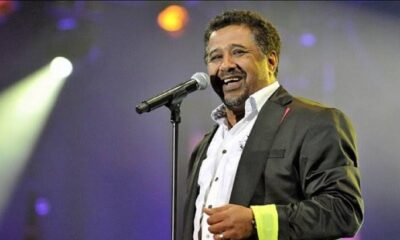

Algeria accuses renowned Singer Cheb Khaled of spying for Morocco
Algerian authorities have accused renowned musician, singer and songwriter, Cheb Khaled, of spying for neighbours Morocco as another wave of...


Rwanda’s e-mobiility startup IZI expands electric bus fleet after getting grant from Green Fund
Rwanda’s e-mobility startup, IZI, has announced the delivery of five electric buses to Kigali, the country’s capital city, after obtaining...
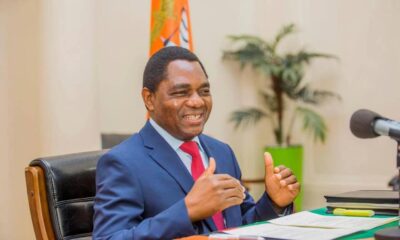

Zambia: President Hichilema sacks three Constitutional Court judges
Zambian President, Hakainde Hichilema, has finally sacked three Constitutional Court judges whom he had earlier placed on suspension. The affected...


In 6 months, Nigerians spent over $2.38 million on medical tourism
According to a recent report, Nigerians spent over $2.38 million on international healthcare services between January and June 2024. The...


Nigeria confirms supplying 24-hr power to Togo, Benin, Niger
Despite its inability to provide steady electricity for Nigerians amid regular collapse of the national grid, Nigeria’s electricity regulatory body,...


Egypt reduces 2040 renewable energy target to 40%, prioritises natural gas
Petroleum Minister Karim Badawi announced on Sunday that Egypt had reduced its 2040 renewable energy target down from a previous...


Nigerian govt imposes 5% tax on telecom, betting services
As part of a new plan to restructure the nation’s tax system, the Nigerian government has proposed a 5% excise...


Again, Tunisian MPs want exclusive power of central bank over interest rates abolished
A measure by MPs on Friday indicated that the Tunisian central bank will no longer be the only entity able...
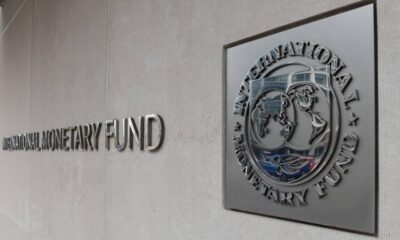

Ethiopia gets first $341 million loan program from IMF
Ethiopia’s $3.4 billion loan program received approval from the International Monetary Fund’s executive board on Friday, the fund announced, opening...
Trending
-

 Metro2 days ago
Metro2 days agoNigerians will begin to see the fruits of Tinubu’s labour— CoS Gbajabiamila
-

 VenturesNow2 days ago
VenturesNow2 days agoNigerian govt imposes 5% tax on telecom, betting services
-

 VenturesNow2 days ago
VenturesNow2 days agoEthiopia gets first $341 million loan program from IMF
-

 Metro16 hours ago
Metro16 hours agoNigeria confirms supplying 24-hr power to Togo, Benin, Niger


